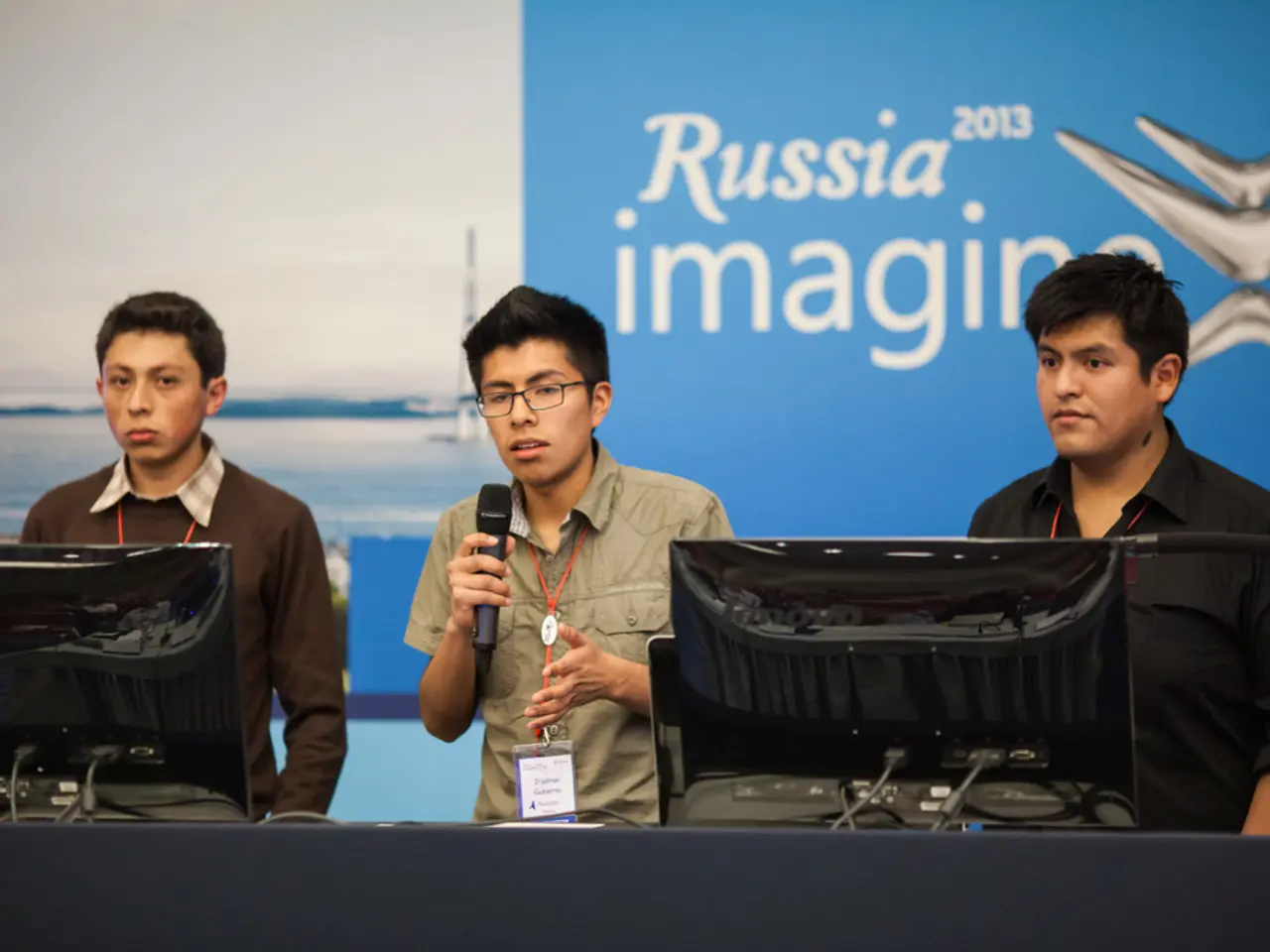Assurance for Kiev by Europeans: No Deployment of American Troops
The Ukraine summit in Washington has been hailed as a historic event by the German government, marking a significant step towards resolving the ongoing conflict. The summit, attended by leaders from Germany, France, the UK, and the US, has sparked discussions about potential security guarantees for Ukraine to secure a possible peace.
Donald Trump, the US President, has expressed his expectation that Germany, France, and the UK will be ready to send soldiers to Ukraine to secure a peace agreement. However, the details of these security guarantees are yet to be decided, with Boris Pistorius, Germany's Defense Minister, stating that the specifics are still under consideration.
There is disagreement on the need for an immediate ceasefire as a precondition for peace talks. Chancellor Merz continues to insist on this demand, while Ukrainian President Volodymyr Zelenskyy has not made it a prerequisite for a meeting with Russian leader Vladimir Putin. French President Emmanuel Macron has warned against rushing into a peace treaty without safeguards, echoing Zelenskyy's sentiments.
British Prime Minister Starmer mentioned that representatives of the Coalition of the Willing plan to meet with their US counterparts to specify security guarantees for Kyiv. The EU Council President has expressed optimism about the negotiations for Ukraine's security guarantees, and European political leaders, including Donald Trump, have discussed promises of protection based on Article 5 of the NATO treaty at a meeting.
Article 5 of the NATO treaty regulates collective defense, where NATO countries can count on the support of their allies in the event of an attack. However, Russia currently rejects the stationing of troops from NATO countries in Ukraine. The US, while ready to support its allies, has stated that it will not send its own troops to Ukraine. Instead, Trump has suggested that European peace troops could be supported and protected by US air power, as several European countries including France and Great Britain have already expressed willingness to contribute to security guarantees involving ground troops for Ukraine.
The public reaction from Russia was initially muted, with Foreign Minister Sergei Lavrov stating that all contacts involving the heads of state must be prepared with utmost care. EU Council President António Costa spoke of growing momentum regarding security guarantees for Ukraine after a video conference of the EU heads of state and government. Costa stated that a promise of protection similar to that in Article 5 of the NATO treaty with continued US engagement should be made.
US President Trump is pushing for a bilateral meeting between Zelenskyy and Putin, followed by a trilateral meeting with his participation. According to German government circles, Putin agreed to a bilateral meeting with the Ukrainian president in a telephone conversation with Trump.
The details of US contribution to Ukraine's protection after a possible peace agreement are uncertain. However, the US has shown readiness to support its allies, for example from the air. The Ukrainian President, Volodymyr Zelenskyy, has described security guarantees for his country as a top priority for peace with Russia. The negotiations and discussions continue, with the hope of finding a lasting solution to the conflict in Ukraine.
Read also:
- visionary women of WearCheck spearheading technological advancements and catalyzing transformations
- Nursing home, St. Luke's, bids farewell to Beate Kalowsky after 34 years of service.
- California Senator Kamala Harris announces she will not seek the governorship in 2026, instead hinting at future professional ventures.
- Surprise in the restroom: Rodents emerging from the toilet bowl - "Preventive Measures"








